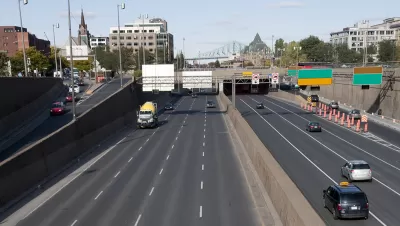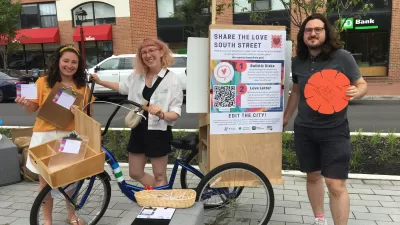If public transit suffers long-term consequences from the coronavirus, as many experts predict, telecommuting could be a key tool in reducing pollution and congestion, but it creates problems of its own and its effects aren't entirely clear.

A post by the Transportation Research Board gathers recent and historic studies on the effects of telecommuting for indications about how the post-COVID world might change if the shift toward working from home stick around for months, years, or indefinitely into the future. But telecommuting creates problems of its own, and research conducted to date, admittedly conducted in conditions short of the kind of wholesale changes inspired by the pandemic, hasn't shown telecommuting to be the kind of slam dunk many might hope it to be.
For instance, research from the 1990s made the case for telecommuting as "an ideal way to mitigate traffic congestion and improve air quality." But another study, completed 20 years later, "showed that regular teleworkers used time and money saved to either take trips they couldn’t during a normal work commute or move farther from the offices they were visiting less frequently."
Then there are the funding problems created when transportation revenues are tied to gas taxes. "Before much of the white-collar workforce began teleworking in mid-to-late March, the Congressional Budget Office had already estimated the Mass Transit Account of the Highway Trust Fund would be exhausted in 2021 and the Highway Account by 2022. States have been thinking outside the pump in terms of how their transportation revenue can be maintained."
FULL STORY: Telework transportation research in light of the COVID-19 pandemic

Maui's Vacation Rental Debate Turns Ugly
Verbal attacks, misinformation campaigns and fistfights plague a high-stakes debate to convert thousands of vacation rentals into long-term housing.

Planetizen Federal Action Tracker
A weekly monitor of how Trump’s orders and actions are impacting planners and planning in America.

In Urban Planning, AI Prompting Could be the New Design Thinking
Creativity has long been key to great urban design. What if we see AI as our new creative partner?

King County Supportive Housing Program Offers Hope for Unhoused Residents
The county is taking a ‘Housing First’ approach that prioritizes getting people into housing, then offering wraparound supportive services.

Researchers Use AI to Get Clearer Picture of US Housing
Analysts are using artificial intelligence to supercharge their research by allowing them to comb through data faster. Though these AI tools can be error prone, they save time and housing researchers are optimistic about the future.

Making Shared Micromobility More Inclusive
Cities and shared mobility system operators can do more to include people with disabilities in planning and operations, per a new report.
Urban Design for Planners 1: Software Tools
This six-course series explores essential urban design concepts using open source software and equips planners with the tools they need to participate fully in the urban design process.
Planning for Universal Design
Learn the tools for implementing Universal Design in planning regulations.
planning NEXT
Appalachian Highlands Housing Partners
Mpact (founded as Rail~Volution)
City of Camden Redevelopment Agency
City of Astoria
City of Portland
City of Laramie





























